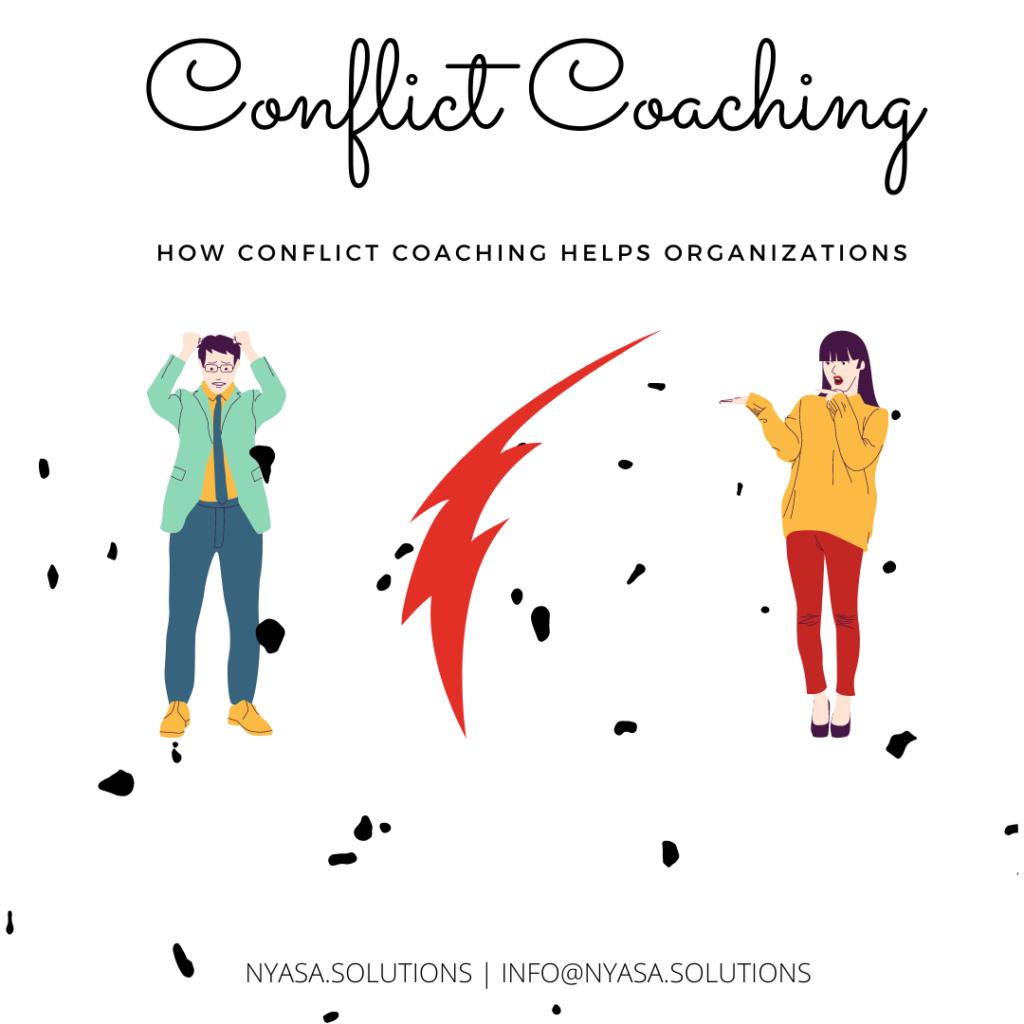
In organizations, conflict coaching is essentially used to enhance conflict competency, integrate learning from conflict resolution training, prepare for a difficult conflict conversation, or a more formal conflict resolution process such as mediation.
Relational conflicts at work can often lead to long-lasting disputes that have a negative impact on the individuals involved and their performance. Not every organization/management is equipped to deal with conflicts effectively and professionally. Workplace conflict coaching helps in restoring the mutual cooperative relationship and ensures that those involved communicate better or differently.
Workplace conflict coaching helps resolve disputes between:
- Individual colleagues
- Teams
- Board and Management
- Managers and employees
Workplace conflict coaching
A conflict coach (mostly a trained mediator) conducts workplace conflict coaching in a way that is structured to help parties involved. The goal is to develop or enhance parties’ conflict resolution skills, understanding, and capabilities, to engage in and manage interpersonal conflict more effectively.
Just like third-party led methods like mediation – which can be followed if conflict coaching doesn’t help – conflict coaching is a consensual process where parties take part voluntary basis. This does not mean that the process is optional. The parties agree to do everything they can to reach a solution and to adhere to the agreements made.
It is also a confidential process that concentrates on each parties’ conflict management goals but may be designed in a way that also supports the organization’s larger goals (e.g., building a team culture, achieving better performance). Confidentiality not only allows everyone to speak freely, but it also helps an organization maintain a good reputation.
As a low-risk and early intervention strategy, workplace conflict coaching helps organizations and their workforce build skills needed to effectively manage and resolve interpersonal conflicts before they become detrimental and insurmountable.
An independent workplace conflict coach makes sure an organization can:
- reinstate relationships and inculcate resilience in case one or parties remain with the organization;
- create self-awareness and transform behavior (by that also the relationships) by developing individual interpersonal skills;
- address the underlying causes of conflict not just the symptoms;
- help employees develop and enhance “conflict competency” – the ability to communicate and manage conflict effectively;
- help managers improve their conflict competency and be a more effective leader.
How long does the process take?
On average, a conflict coaching process takes ten to twenty hours. This makes it a quick and relatively cheap approach to a conflict, certainly in comparison with long-term litigation or arbitration (in the worst-case scenario where the conflict has arisen to the level of escalation).
Conflict coaching: not just for organizations
A conflict can of course arise in several places. Think of a conflict between an educational institution and parents or students. But emotions can also run high between business partners, families, couples, neighbors, and so on. Conflict coaching can also help in these situations to find solutions together.
